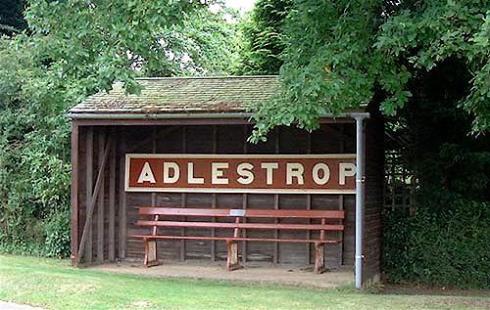 Edward Thomas’s birthday was yesterday and to commemorate it the Fellowship met this morning for a five mile walk around the countryside of the village of Steep in Hampshire. Walking around the places that inspired Edward Thomas made me think about how a place can be haunted by a writer’s work and wonder if their interpretation of a landscape restricted our own perception of certain places, or made us look more closely at the landscape.
Edward Thomas’s birthday was yesterday and to commemorate it the Fellowship met this morning for a five mile walk around the countryside of the village of Steep in Hampshire. Walking around the places that inspired Edward Thomas made me think about how a place can be haunted by a writer’s work and wonder if their interpretation of a landscape restricted our own perception of certain places, or made us look more closely at the landscape.
The ingredients of Thomas’s poems were all there: the steady rain, the mist circling upwards, the fields laid out for miles from the height of the hill, the diverging paths, and the tree lined lanes. Even the glimpse of road fitted with his common themes. It made me visualise the poems more clearly, it also explained how such places lifted him, temporarily, from his depression, and why home was such an emotive word for him when he was in France.
Edward Thomas’s poetry seems to have a deep impact on a broad range of people. I walked with writers, academics, people who had just found him by chance, those who had learnt about him at school and returned to him later, and the organisers who work hard to ensure his talent is not forgotten. One writer I met said she would love to live in Steep and I can understand why. I think that meeting his great granddaughter Lucy was a huge privilege. She spoke about how special it was to have that heritage and the love of nature she thought she had inherited from him. She certainly had the same pale blue eyes as in the photos. We spoke about how Thomas would have felt about the biographies poking about his private life and about her father finding his war diary at the bottom of a case.
What I took from the day was a clearer impression of the place Edward Thomas loved and preserved for us in his writing. Walking with the Fellowship reaffirmed my observations of how people take his work to heart because of its honesty and lack of pretension. And finally, during the readings of Thomas’s poetry by his memorial stone the rain was beating so hard on my umbrella that only a few words reached me from each poem. This was similar to the experience of walking through the landscape he loved. My first reaction was to the beauty of the place in itself, but soon snatches of his poems entered my mind and attached themselves to the weather, the sounds, the views and the journey. It was if Edward Thomas walked with me; pointing things out, directing my gaze and making a beautiful place precious.
